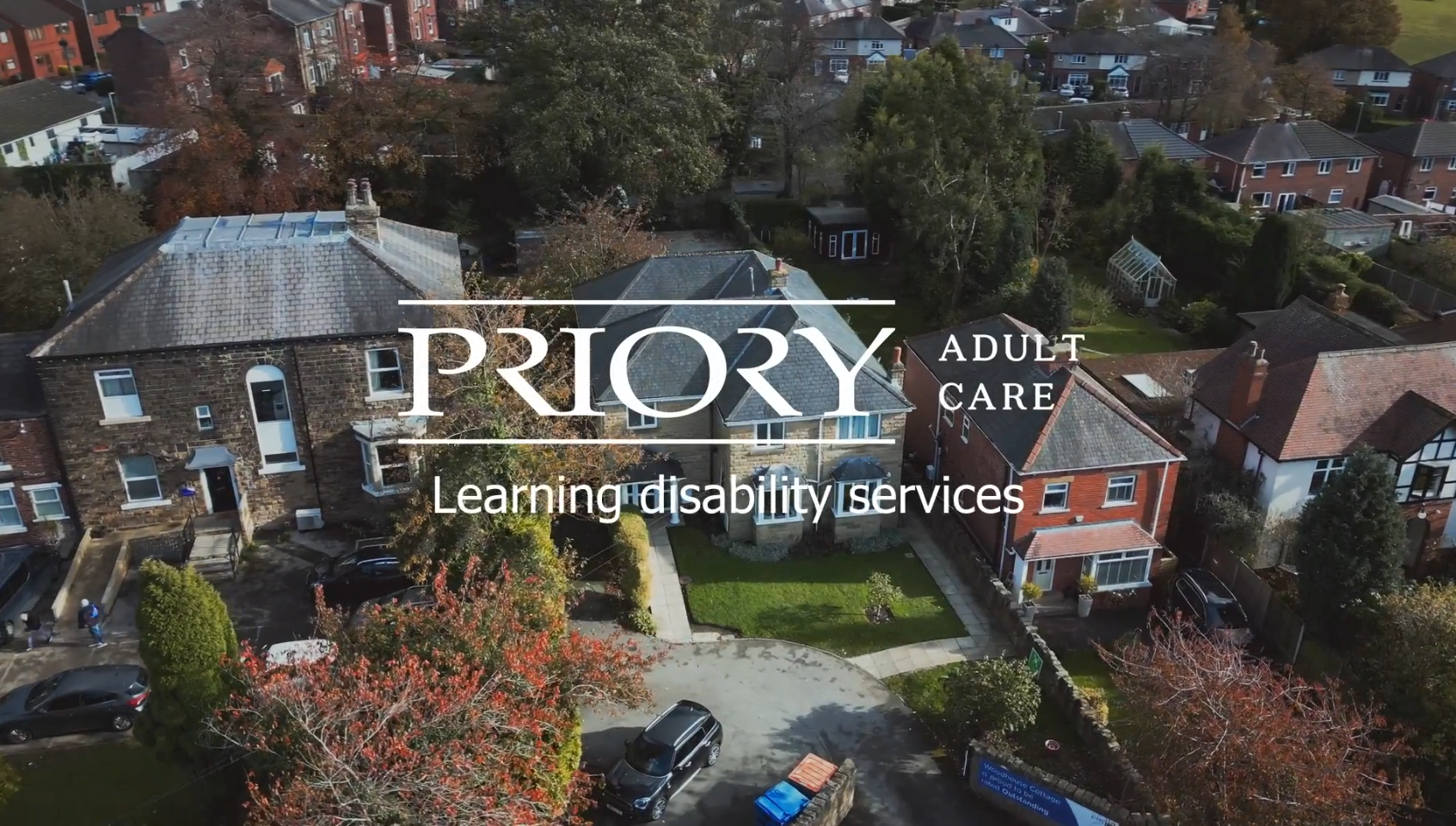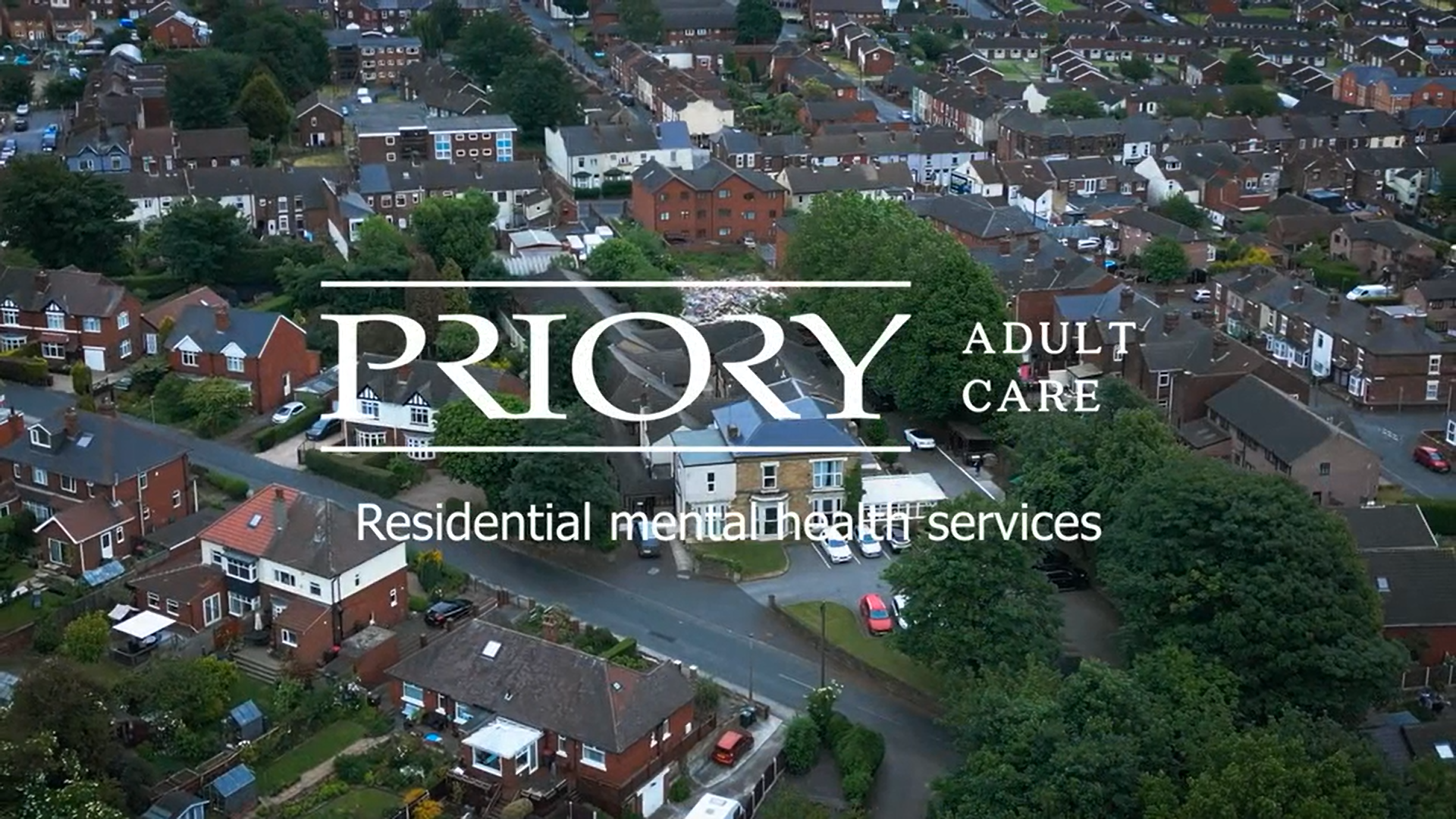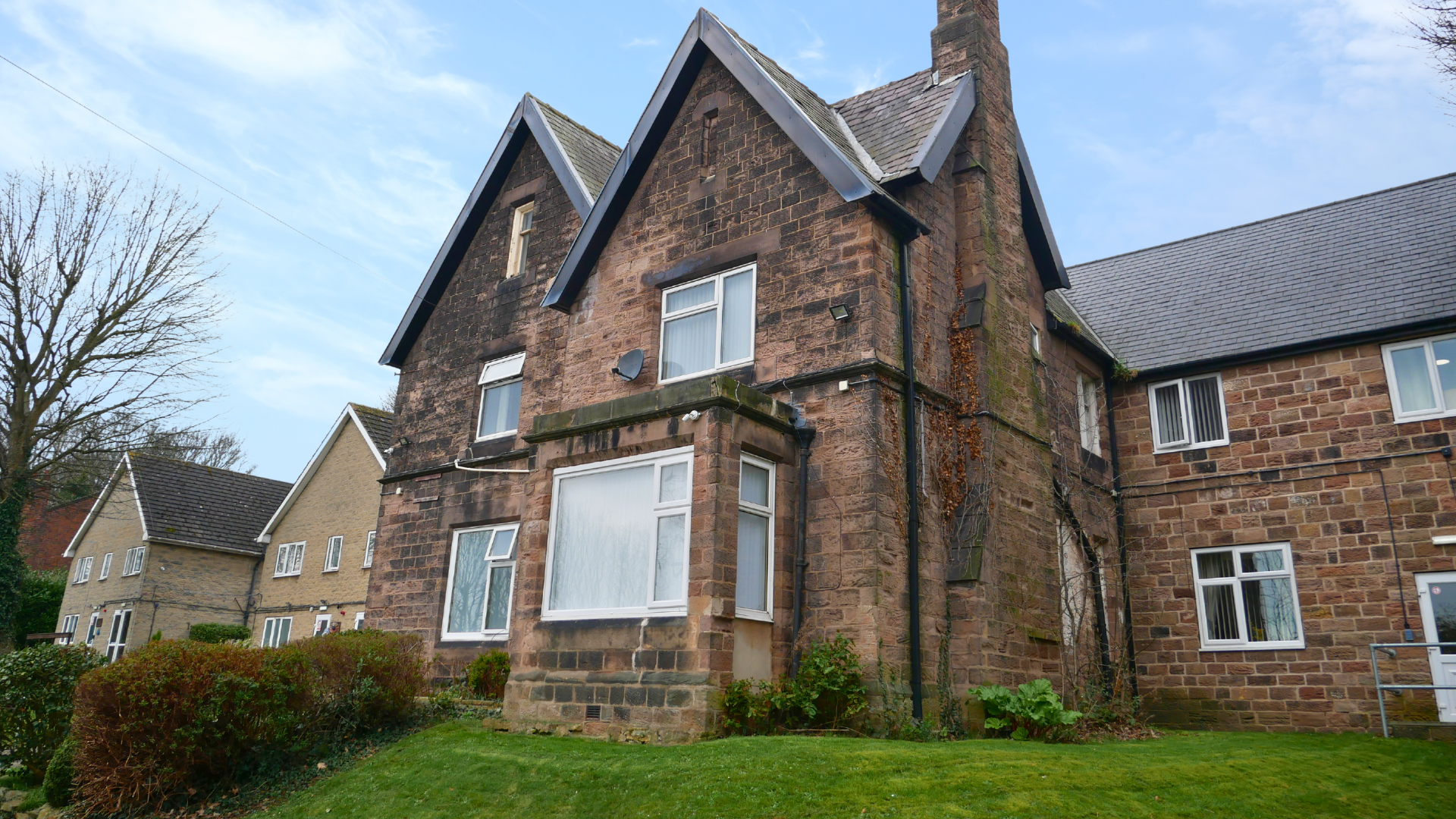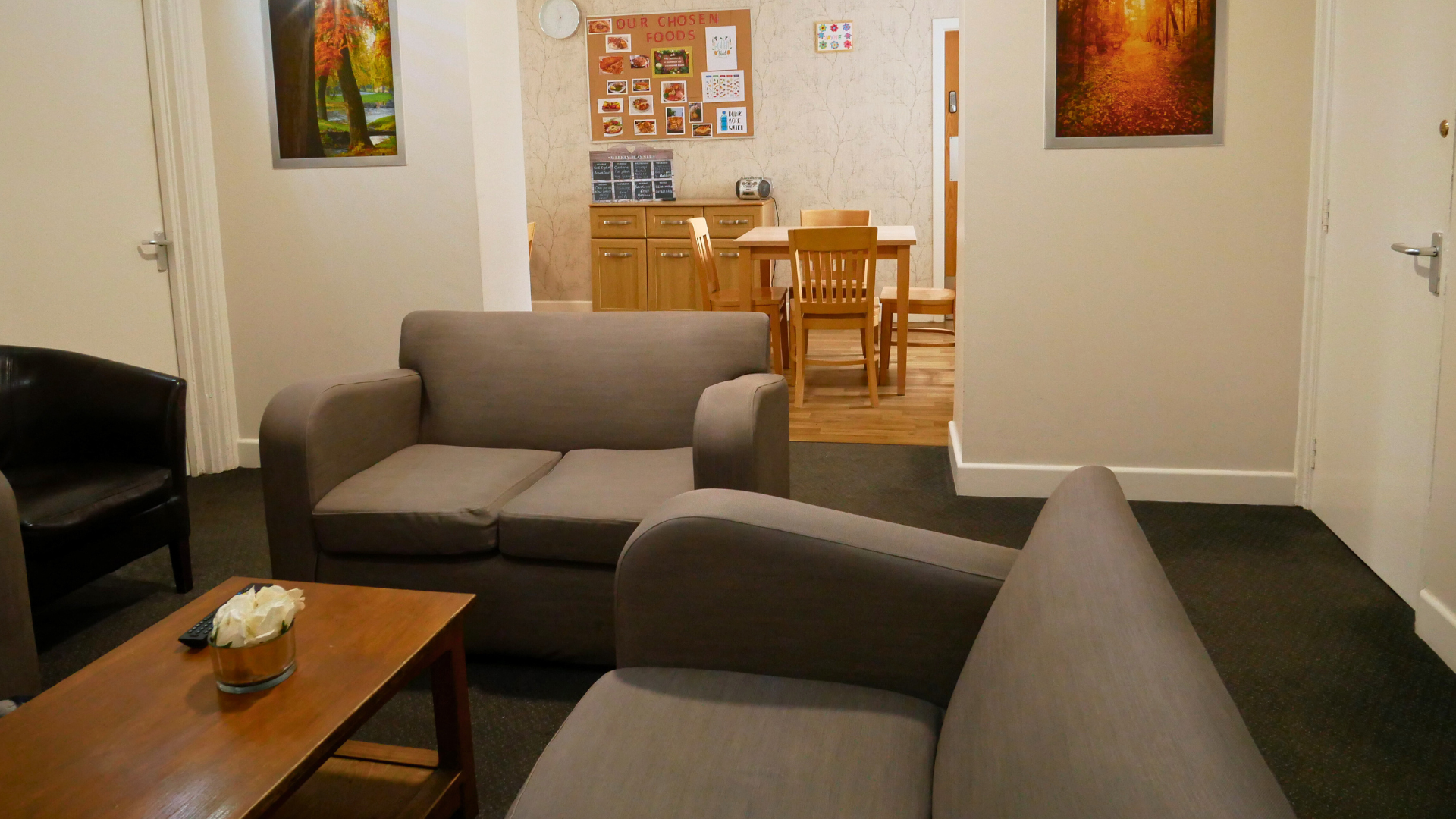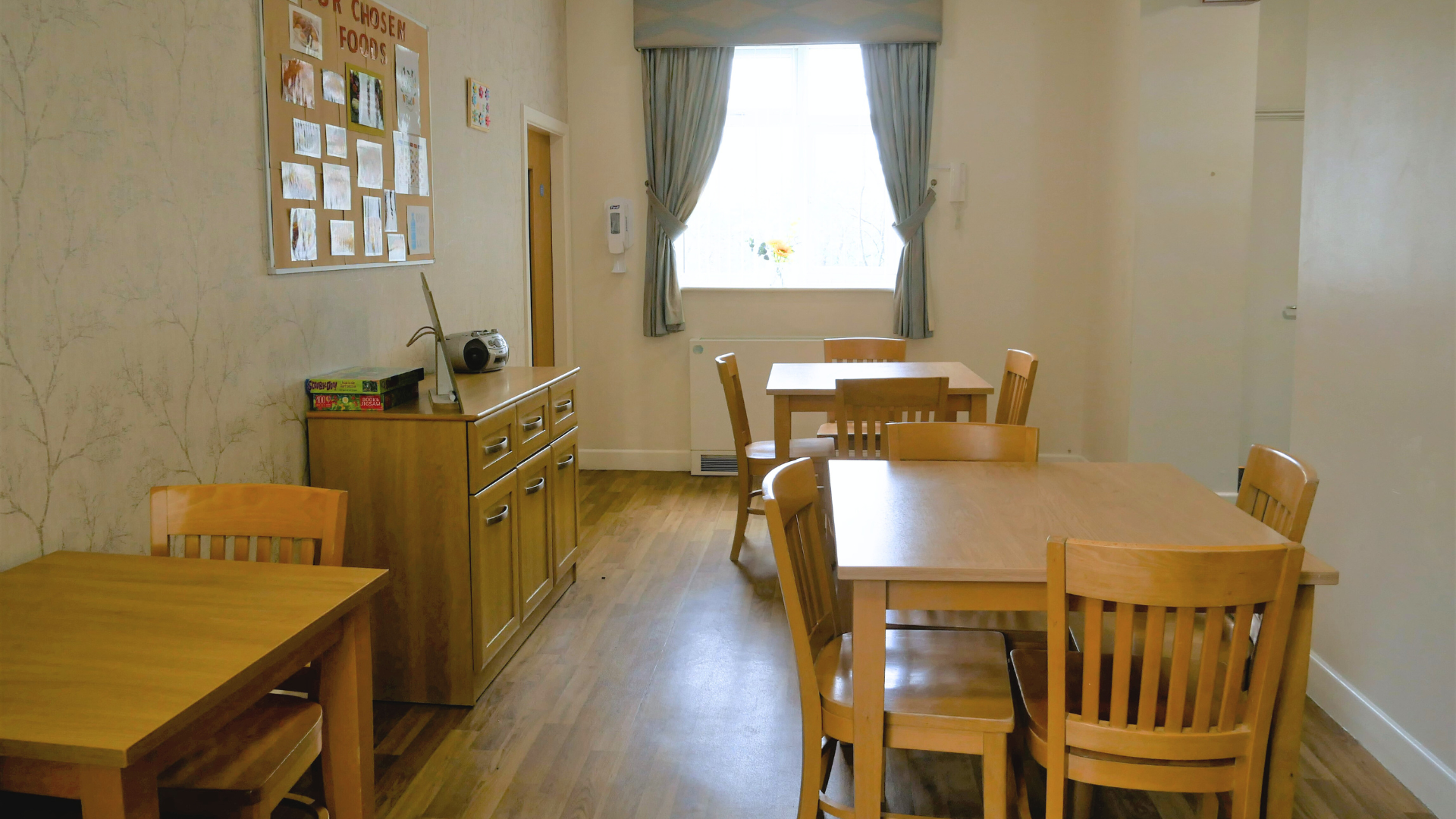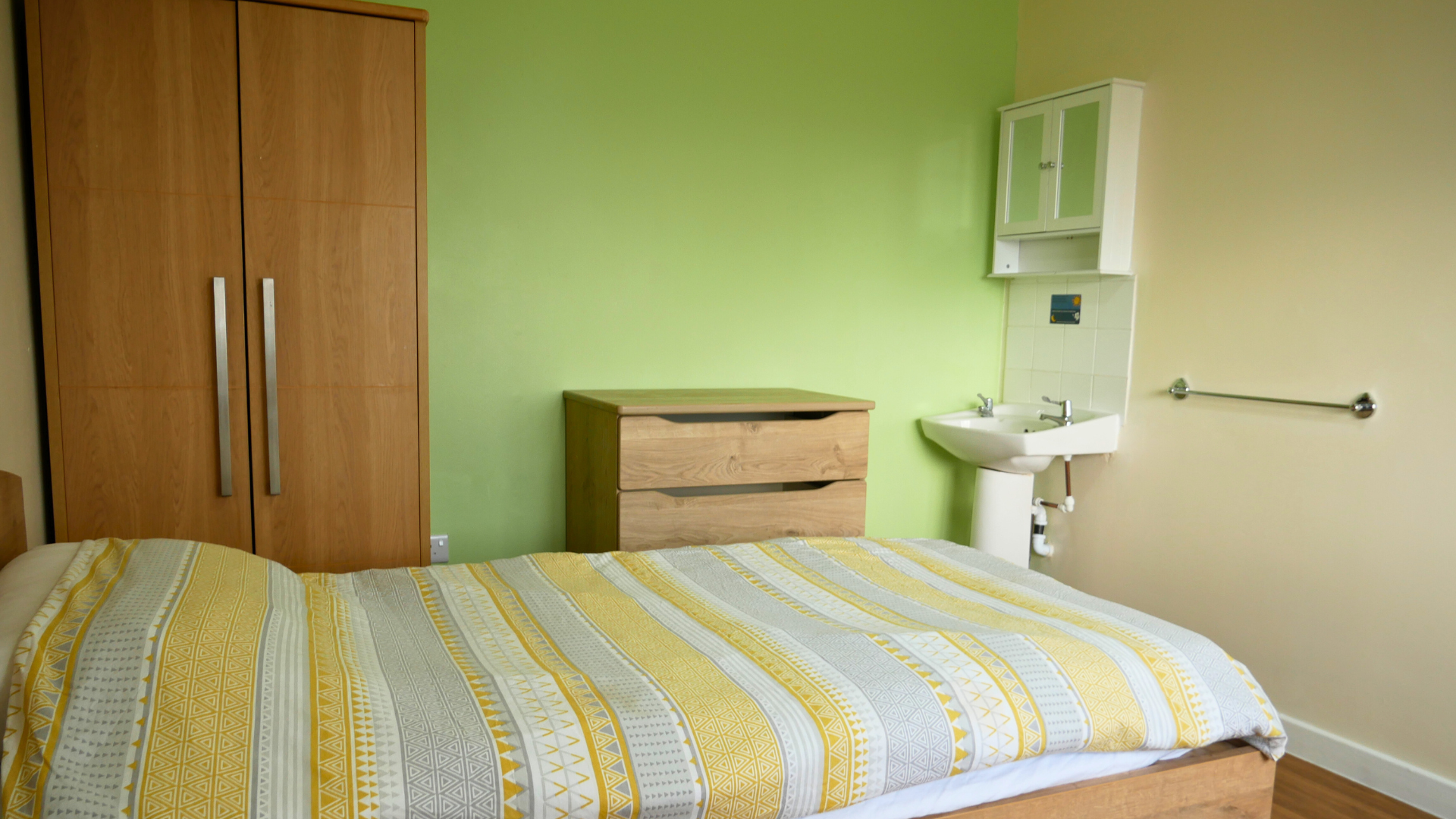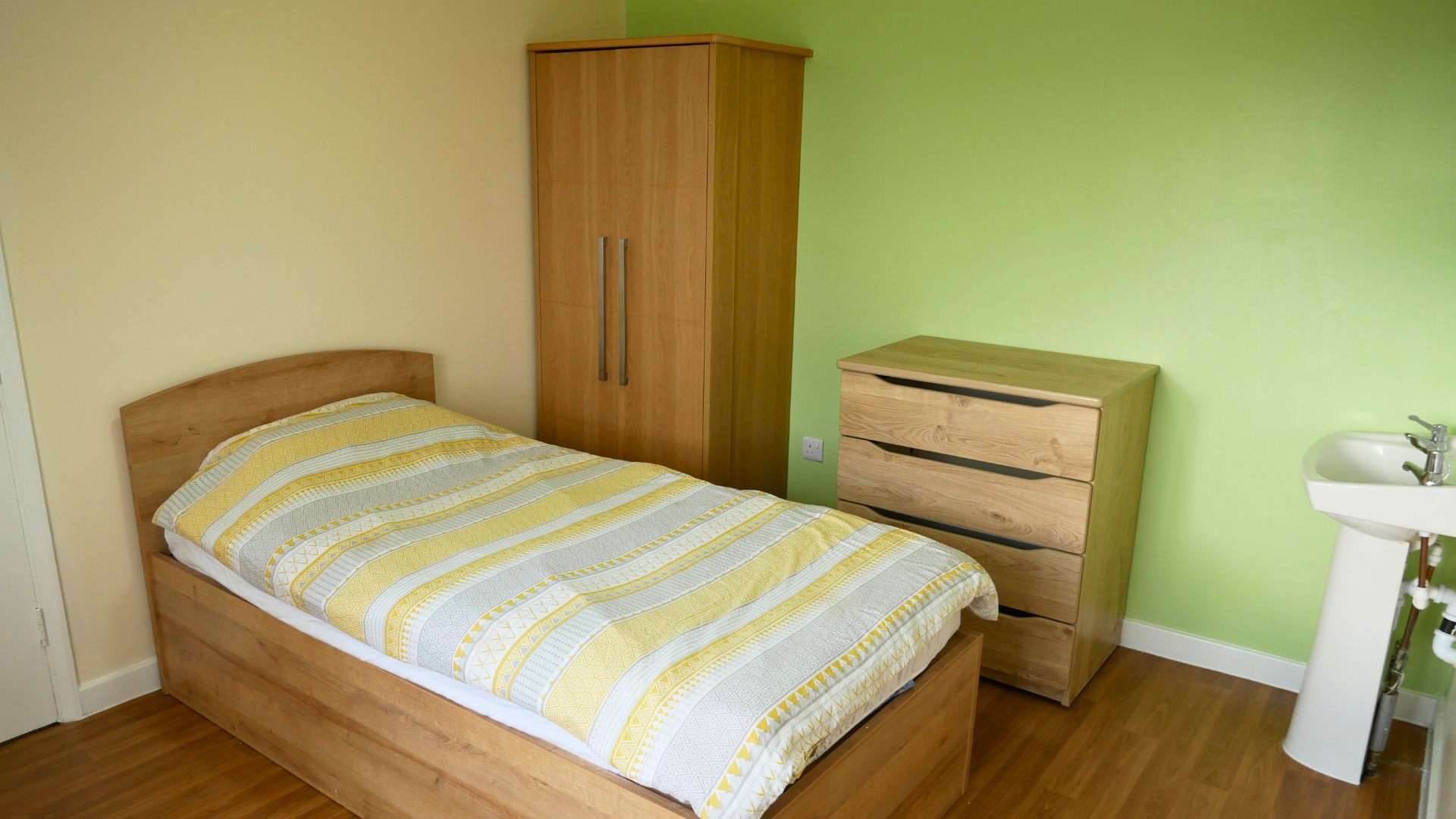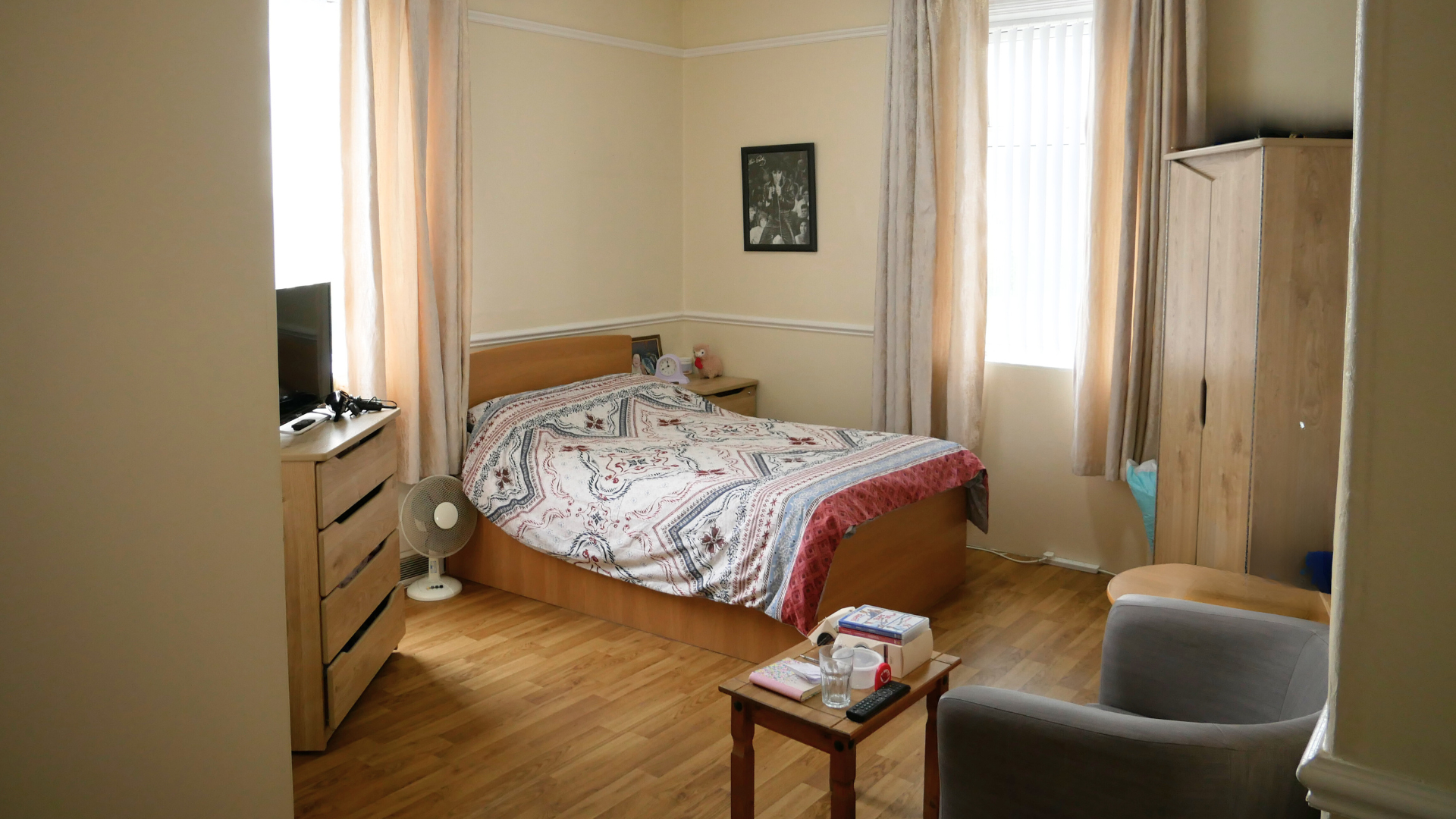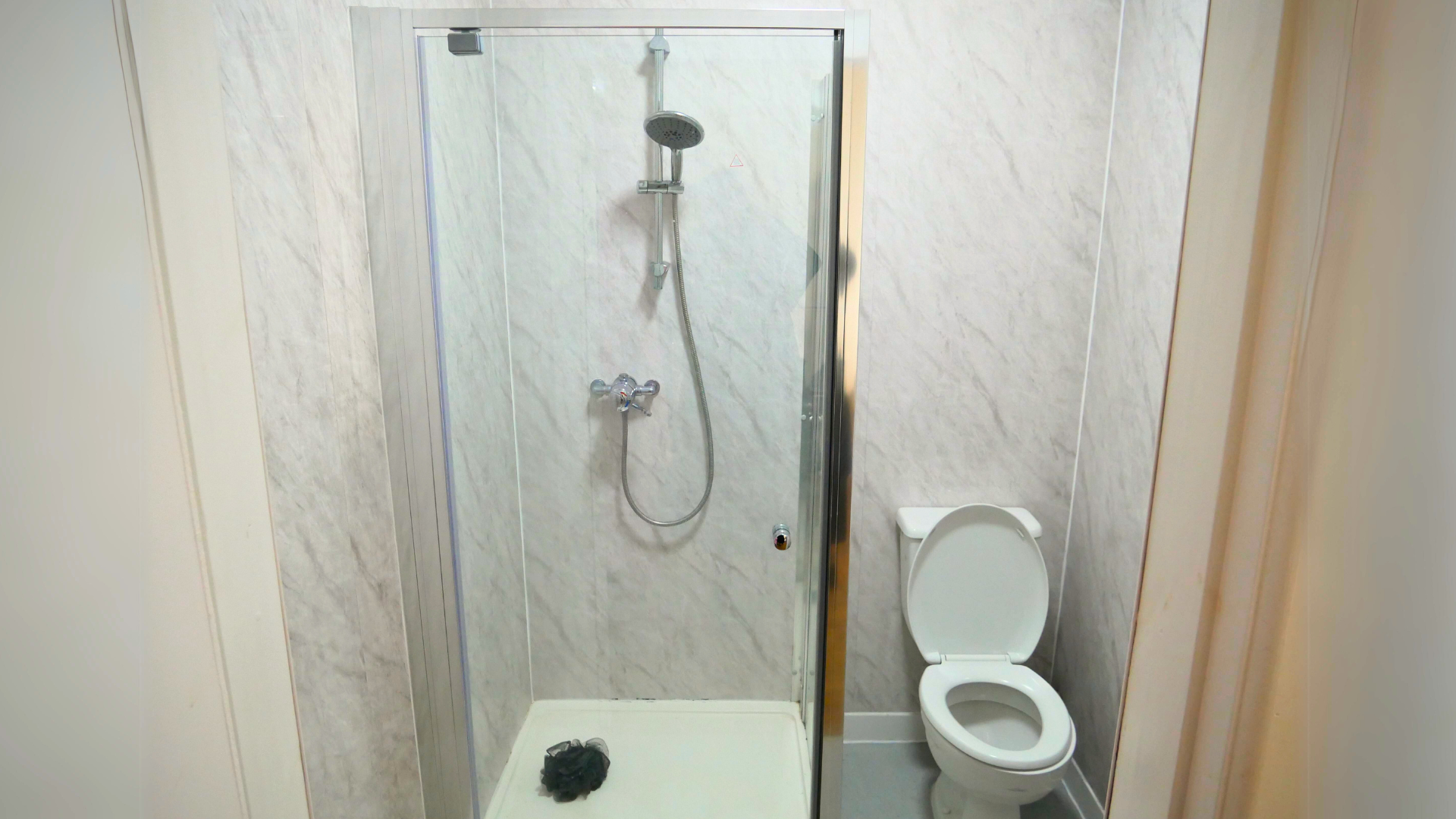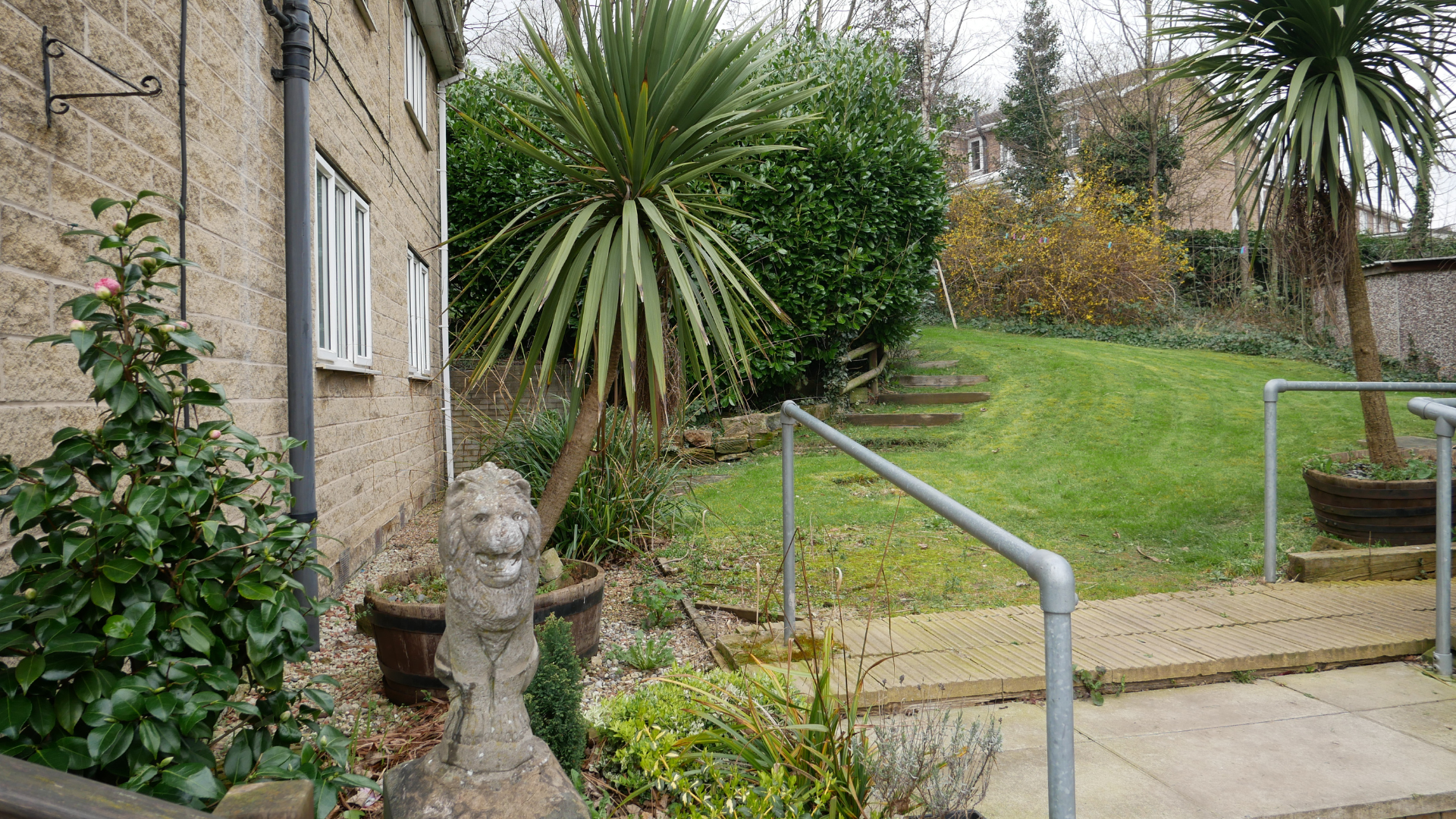About this location
Church View is located in Kimberworth, a suburb of Rotherham. It offers residential support for 25 males and females with mental health needs, in a homely environment.
Our team are dedicated to improving the health and wellbeing of the people we support, helping them to achieve positive outcomes. We want to help each person we care for to have a healthy, happy and independent life, within a safe and welcoming home.
We can support people with other support requirements alongside their mental health needs, including those who:
- Have a mild learning disability
- Are on the autism spectrum
- Display mild to moderate behaviour that may challenge
- Have a forensic background
Services at a glance
Click here to enable this content
About our service
Our facilities and environment
Church View is set in a detached, Victorian property, with two other detached houses within the same grounds. The service is made up of:
- The main house called the Vicarage, which has 2 ground floor bedrooms with en-suite shower rooms, and a further 7 bedrooms on the first floor, 4 of which have en-suites
- The second house, Canterbury, has 2 ground floor bedrooms and a shared bathroom, and 6 more bedrooms on the first floor
- York is the third house and it has 3 ground floor bedrooms and 5 bedrooms on the first floor
In summary, we offer:
- A large lounge with plenty of seating
- Kitchen and dining room
- Communal bathroom
- Communal wet room
We also have a very large garden, complete with:
- Lawn
- Patio
- Communal seating
- Shelter
- Wheelchair access
Our bedrooms
All of our bedrooms are comfortable, welcoming and can be personalised to individual tastes. Some of our bedrooms have en-suite facilities, containing either a shower or a wet room, and some have wheelchair access. All of the other bedrooms have access to shared bathrooms and wet rooms.
Our approach to support
Everybody who lives at Church View has their own person-centred care plan, which is co-produced with input from the individual, their family members and professionals involved in their care. We aim to help everyone in our care to make their own choices about the support they receive. This may include support in a number of areas, such as going out in the community, personal care, cooking and cleaning, and maintaining family relationships.
Our support approaches at Church View include:
- Positive behaviour support (PBS)
- Occupational therapy
- Psychiatry
- Nursing
- Physiotherapy
- Speech and language therapy
- Psychology
We also have support from a local multidisciplinary team to deliver these services. In addition, we use tools such as the Outcomes Star™ to support our residents to achieve their goals.
The lengths of the placements that we offer at Church View can be transitional, short-term, medium-term or long-term residential, depending on the needs of each person.
Activities
Everyone who lives at Church View has their own personalised activities planner and are encouraged to take part in activities which are meaningful and fulfilling to them. Our dedicated team organise a variety of activities at the home, as well as out in the community.
We focus on supporting our residents to grow their independence. For some people, this may mean developing their daily living skills within the home. For others, this could be accessing work or educational opportunities in the local community.
Exclusion profile
- Those who pose a risk to others in communal living areas
Pathways
Through our network of healthcare, residential and supported living facilities, we provide unique care pathways which help the people we support to progress towards greater independence. Every individual we support is provided with a bespoke pathway plan, tailored according to their individual needs. We aim to ensure that each person is supported to live a fulfilling and active life in the community.
Our team
Our highly experienced team consists of:
- Service manager
- Deputy manager
- Support workers
- Senior support workers
- Activities co-ordinator
- Housekeeper
- Maintenance worker
- Administrator
Our team receive specialist staff training, designed to meet the needs of each individual we support. This includes:
- Personality disorder training
- Schizophrenia training
- Mental capacity act training
- PBS training
- Diabetes management training
- Epilepsy management training
- Understanding mental health training
- Understanding autism training
Comments from our residents and their family and friends
There are lots of fun activities to do here. I really like going bike riding and swimming
Family and friends FAQs
How does home leave work?
We support our residents to attend family events and visit their family homes. We will work with the resident and their relatives to ensure possible risks are managed and that everyone is supported.
Can friends and families visit?
Family and friends are welcome to visit and participate in activities at the service, and we can provide meals and refreshments. Visits are usually planned in advance to support individual needs. Unfortunately, family members cannot stay overnight.
Will I be involved and kept up to date with the progress of my loved one’s care and support?
Yes, we strive to keep the loved ones of our residents involved in their care, where this is in line with individual care plan agreements and consent around information sharing. Families may be invited to meetings at the home, where they will meet with the residents’ support team and hear about recent happenings at the home. We can also arrange more regular catch-ups either in person or via telephone, if this is preferable.
Will my loved one be able to have a phone or call me?
Everyone who stays with us are supported to call their loved ones any time, via phone or video call. Family and friends are also able to call as often as they like. We have our own landlines which are available to use, in addition, many of our residents also have their own mobile phones.
What are the bedrooms like?
Bedrooms are all furnished and residents are supported to personalise them to suit their needs and wishes.
Are external doors kept locked?
Our doors are only locked at night, as you would at your own home. However there is a locked gate access to the grounds and house. The gate has a keypad which is accessible for most residents unless they have restrictions on leaving their home without support. This is dependent on a risk assessment, so we can ensure the safety of our residents.
What do residents eat and how do meal times work?
Our residents work together to agree a monthly menu, but alternatives are catered for if they have any requests. People can be supported to prepare the main meals if they wish to do so and can also prepare an individual alternative meal. We encourage and support everyone to be involved in preparing their own breakfast and lunch/light snacks throughout the day.
How does laundry work?
All residents have their own assigned laundry day and are supported as needed to complete this. Where people are unable to manage their own laundry, staff will provide assistance as needed, but will continue to work with individuals to develop their skills in this area.
Who does the housekeeping and domiciliary tasks?
Staff support and encourage our residents to complete these tasks, to promote their independence. In particular, we support the people who live here to maintain their bedrooms on a day-to-day basis. We also have a dedicated housekeeper and maintenance team at the home, who keep the communal areas clean and tidy.
Is there anything they can’t bring or have?
We may place restrictions on some items where the risks cannot be appropriately managed, such as alcohol and non-approved drugs and medication. This will be discussed on an individual basis, where needed.
How do activities work?
We have a seven-day activities planner for residents, offering activities both in-house and in the community, ensuring that people have a choice. The plans are set by our residents in their 'Our Voice' meetings. Individuals are also supported to engage in activities on a one-to-one basis, as agreed in their support plans.
How will residents be supported with their behavioural needs?
If our residents need support with their behaviours, we work with our positive behaviour support (PBS) team to create a plan, and staff are trained accordingly. Where people need further support, including interventions such as pro re nata (PRN) medication, this will be agreed with health professionals, and robust protocols are put in place to support this.
Do residents and families have an input into the care plans?
We work with individuals to develop their unique support plans, and these are regularly reviewed and kept updated. We liaise with extended care providers and professionals to ensure that the correct support is in place for each individual. Where individuals consent to family involvement, we can work together to look at how this works, within the best interests of the person.
What are the car parking facilities?
We have our own parking facilities within the grounds, and there is also additional parking on the road outside the property.
What is the smoking policy?
There is a smoking area for residents to smoke or to vape on our secure grounds, although we do not permit smoking of any kind inside the properties. Residents are able to buy cigarettes or vapes at the shops, as this is their choice. However, we aim to promote healthy lifestyles and can support our residents to reduce their consumption of cigarettes, if this is what they wish.
What are your fees and how are they funded?
Our fees can vary, and are based on an assessment of each individual's needs. Many people are eligible for financial help towards the cost of support, and this funding can be accessed by contacting your local authority. Once funding has been agreed, we will work with your local care team to put together a bespoke package of care. Please note, referrals for NHS or Local Authority funded services must come from a referring organisation.
How to make a referral
Our service provides high quality support to people with varying levels of need. Referrals can be made through the individual’s social care team or, if relevant, their local health authority. If you are a professional looking to make a referral, please call us or fill in our enquiry form.


